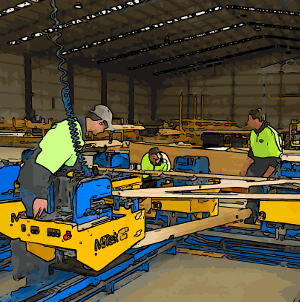Training industry workers

Every employer knows that their business is only as good as its employees. The better they are at doing their jobs, the stronger the business will be.
But there aren't many employees who arrive at the company on day one fully trained and ready to go, without the need for some form of job-specific training. And even when they have been skilled up to do their job properly, they will still need to be brought up-to-date every time changes are made to workplace procedures, or the nature of their duties, or the equipment they use.
That's why the process of training and assessing is so crucial to the on-going success of every business.
Without good quality training, employees can't learn all the things they need to know in order to work safely and productively. And without rigorous assessment, they won't have a performance standard to aim for, and be rewarded for when they achieve it.
As a workplace trainer and assessor, you have one of the most important jobs in the company. You are directly involved in motivating the workers to improve their skills and aim for long term goals; and directly responsible for deciding when a worker has met the standard required to be assessed as 'competent' in the skills they have acquired.
Training and assessing is hard work, but it is also enormously rewarding. There are not many jobs in an organisation where the effort you put in can have such a far-reaching and personal effect on the workers you deal with.
Remember that it's not just the company who benefits from the increased knowledge and skills that you have helped the learners to acquire. It's also the learners themselves who gain from receiving new accreditations and qualifications.
These are personal assets that improve their employability and enhance their confidence, and provide a formal recognition of their skills that they can take with them wherever they go.

